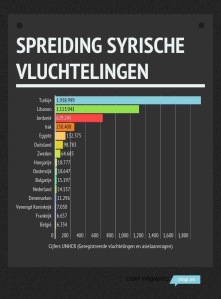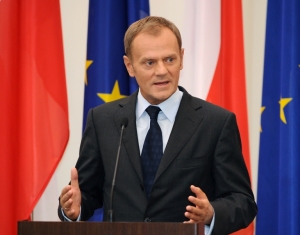
BRUSSELS, BELGIUM – MARCH 26: A Palestinian flag is seen on a flag pole outside the European Commission building before Palestinian President Mahmoud Abbas meets President of the European Commission Jean-Claude Juncker in Brussels, Belgium on March 26, 2017. ( Dursun Aydemir – Anadolu Agency )
A strategic advocacy approach takes into accounts the root causes of non-compliance with IHL and IHRL. While the EU and its member states currently do provide humanitarian assistance to displaced Palestinians, it fails to consistently address the Israeli policies that create the ground cause of illegal displacement of Palestinians.
Rights based approach
When addressing Israel’s forced internal displacement of Palestinian communities, it is important to articulate and emphasize a rights based approach. In taking a stance on displacement of Palestinian communities, we want the international community to act upon the fact that Israel is the primary duty bearer for the welfare of Palestinian communities living under its control – both within Israel as in the oPt. In advocating compliance with international law we should encourage international decision-makers to act upon their duties under IHL and IHRL while applying these internationally agreed upon legal norms in their complementarity to each other.
Forced displacement in the oPt
To this end we call on the EU and the member states to comply with its duties of IHL under all four Geneva Conventions of 1949 wherein specific duties are conferred on third states to respect and to ensure respect for the Convention in all circumstances. We encourage the EU and its members states to enhance and strengthen diplomatic protest and collective measures to realize its policy statements regarding the forced internal displacement of Palestinian communities in the OPT. The international community should enact penal sanctions against acts of unlawful transfer of protected persons, search for the persons carrying out the orders to this practice and bring suspects for theirs courts since this are the legally agreed upon consequences of committing a grave breach of the Geneva Conventions – of which unlawful displacement of Palestinian communities in the oPt is a part.
We advocate for diplomatic protest and collective measures to be a response to evictions and land appropriation; military incursions; the expansion of settlements and related infrastructure; the construction of the West Bank Barrier; violence and harassment by settlers; the revocation of residency rights in East Jerusalem; discriminatory denial of building permits and house demolitions and the system of closures and restriction on the right of freedom of movement. These nine triggers which lead to the forcible transfer of Palestinians in the oPt – as formulated by the Special Rapporteur on the situation of human rights in the Palestinian territories occupied since 1967 – form the initial grounds for all advocacy actions towards the EU and its member states when addressing Israel’s forced internal displacement of Palestinian communities in the oPt.
Forced displacement in Israel
The international community’s common response to forced internal displacement of Palestinian communities in Israel is based on the basic rules of IHL being peremptory norms from which no state is allowed to derogate. We therefore call upon the EU and its member states to not recognise as lawful the continuous practice of forcible displacement of Palestinian communities in Israel and to not render aid or assistance in maintaining this situation.
In all advocacy steps for raising the issue of Israel’s forced internal displacement of Palestinian communities in Israel, we urge the international community to respond to the ongoing discrimination in land allocation and planning and the discrimination in housing policies as being the Israeli policies that deprive Palestinian communities in Israel to enjoy their right to freedom to choose one’s residence (ICCPR, Art. 12), their right to freedom from arbitrary interference with one’s home (ICCPR Art. 17 (1)) and their right to adequate housing (ICESCR, Art. 12).
Advocacy Instruments
We opt to use the Guiding Principles on Internal Displacement as a tool to call upon the EU and its member states to comply with their duties under international law. Referring to the Guiding Principles, the rights based approach is continuously being advocated through the frame of IHL and IHRL. This way the issue of forcible internal displacement of Palestinian communities in the oPt and Israel is raised through pointing out the duties of Israel and third states under international law.
Advocacy Aims
Advocacy following the above principles should aim at:
1) enhancing the leverage of the EU and its member states in bilateral relations with Israel
2) creating a forum on international level that includes Palestinian representatives so as to ensure recognition of the human rights violations of forcefully internally displaced Palestinians while realizing participation, dialogue and the right to self-determination
3) reaching decision-makers through policy briefs, providing a knowledge database, providing updated information, in-depth analysis, evaluations of international policy and continuous presence on the agenda of the international community
4) stregthening civil society organizations in their aim to realize a just peace by putting an end to unlawful forced internal displacement of Palestinian communities in the oPt and Israel, while specifically encouraging the taking into account of Israeli policies as the root causes of forced displacement
5) creating space, on a community level – both in Israel and in the EU and its member states – to question the Israeli occupation of the oPt as a means to counteract the ongoing normalization of the occupation
6) creating, enhancing and protecting a learning platform where civil actors find a safe place for dialogue, knowledge-sharing, cooperation and training so as to encourage interaction between civil society organizations in Israel, the oPt and the EU member states




